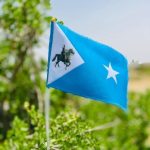Khatumo State is a self-declared regional administration in the northeastern part of Somalia. Situated between the Puntland and Somaliland regions, Khatumo is a region rich in history and resources, yet its security and economic dynamics remain complex and highly dependent on regional politics. In recent years, Khatumo has faced a mix of challenges and opportunities as it seeks greater autonomy while navigating the broader political landscape of Somalia.
Security Situation: Challenges and Opportunities
The security landscape of Khatumo State is shaped by both internal and external factors. The region, while relatively peaceful compared to parts of southern Somalia, has faced periodic instability due to territorial disputes with neighboring Puntland and Somaliland. These disputes often erupt into clashes, exacerbating local security concerns.
Khatumo’s position as a “border” region between Puntland, which claims the area, and Somaliland, which also lays territorial claim to parts of it, places it in a delicate political and security position. Although there have been efforts to broker peace and reconciliation, these disputes often spill over into violence, undermining stability and impeding development.
Additionally, the presence of militant groups in nearby regions, such as Al-Shabaab, also remains a constant threat. While Khatumo itself has not been a major battleground for Al-Shabaab, the broader regional instability creates challenges for security forces.
However, in the face of these challenges, local leaders have focused on building their own security infrastructure. Khatumo has established its own local militias and security forces to help manage internal disputes and protect the population. The community’s resilience and determination to secure its future are evident, but sustainable peace will depend on the resolution of political tensions and effective collaboration with regional and national authorities.
Economic Development: Striving for Growth Amidst Challenges
Economically, Khatumo State is rich in natural resources, including pastoral land, minerals, and potential for agriculture. However, like many regions in Somalia, the economic situation is constrained by instability, lack of infrastructure, and limited access to international markets.
The pastoral economy is a key driver of the region’s economic activity, with livestock farming being the primary source of livelihood for most of Khatumo’s population. The region has a tradition of nomadic pastoralism, and its livestock products, particularly goats, sheep, and camels, are traded in both local and regional markets. Despite challenges in security and governance, Khatumo has significant potential to increase its livestock exports if better trade routes and market access can be developed.
In addition to livestock, Khatumo also holds potential in agriculture, especially in areas where irrigation is feasible. The fertile valleys of the region could support a range of crops, from cereals to fruit and vegetables. However, agricultural production is often limited by recurring droughts, poor infrastructure, and the political instability that hinders long-term investments in the sector.
Khatumo also has mineral resources, with deposits of precious stones and other valuable minerals. However, these resources have yet to be fully exploited due to the region’s instability and lack of proper governance and infrastructure. If these resources are managed effectively and peace is restored, they could provide a significant boost to the local economy.
One of the region’s most pressing economic challenges is the lack of basic infrastructure. Roads, electricity, and healthcare are all underdeveloped, hindering growth and making it difficult to attract foreign investments or create a thriving local economy. Without substantial investments in infrastructure, Khatumo will continue to face economic stagnation.
Despite these challenges, the people of Khatumo remain hopeful. Diaspora communities from the region are playing an important role in remittances, which support many families. Furthermore, local entrepreneurs are beginning to invest in small businesses, especially in trade and retail, which helps generate some economic activity.
Conclusion: The Path Forward
Khatumo State is at a crossroads. Its security and economic future depend on resolving political tensions, fostering internal peace, and developing the region’s potential. While there are significant challenges to overcome—ranging from territorial disputes to a lack of infrastructure—the region also has tremendous opportunities in agriculture, livestock, and minerals.
With stronger governance, better security, and more investment in infrastructure, Khatumo could become a hub for economic growth in northeastern Somalia. Regional cooperation and a focus on long-term development will be key to ensuring a stable and prosperous future for Khatumo State.




